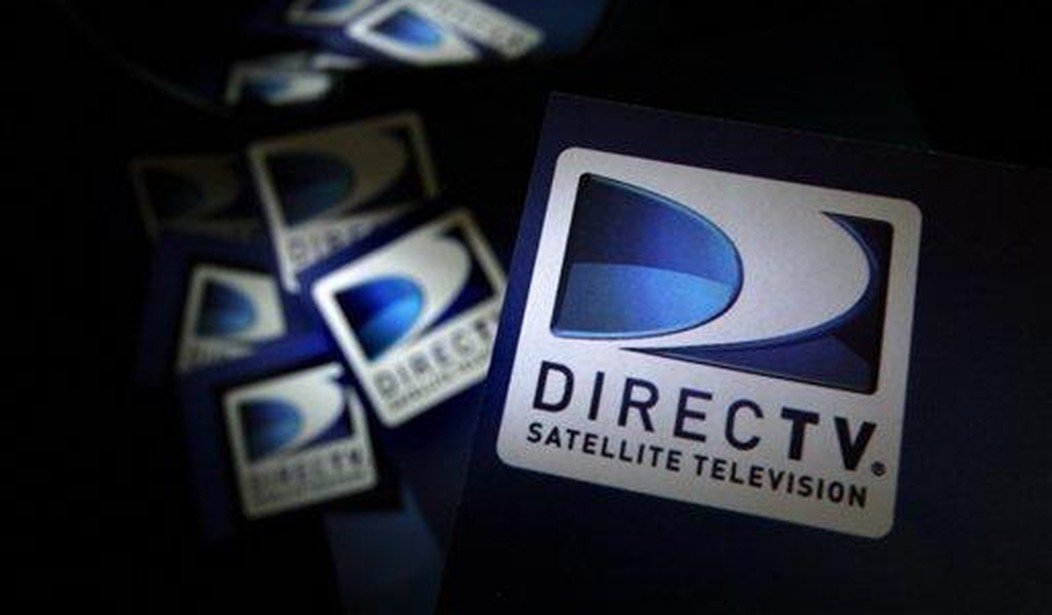Editor's note: This piece was co-authored by State Financial Officer CEO Derek Kreifels.
In three years, America will be celebrating its 250th anniversary. But even today, one of our basic freedoms is under organized assault. In America, you’d expect that a person wouldn’t have to worry about losing their job or their business just for expressing a political opinion. And yet the suppression of free speech is going mainstream, recast by some as a way to “protect the public” from misinformation. The deplatforming of conservative cable news services One America News Network (OANN) and Newsmax stand out as egregious examples.
In February 2021, California congressional Democrats Anna Eshoo and Jerry McNerney took the extraordinary step of sending letters to AT&T, Verizon, Roku, Amazon, Apple, Comcast, Charter, DISH, Cox, Altice, Hulu, and Alphabet in which they pointedly asked company executives whether they were “planning to continue carrying Fox News, Newsmax, and OANN.” Using the January 6 riot at the Capitol as a pretext, the congressmen sought to bully the companies into deplatforming the conservative networks as a means of silencing the airing of political views with which they disagreed. They accused the networks of the “spread of dangerous misinformation” surrounding the November 2020 elections, adding, “These same networks also have been key vectors of spreading misinformation related to the pandemic.”
DirecTV was the first to bow to the Democrats’ wishes, deplatforming both OANN and Newsmax in April 2022; Verizon Fios followed suit in August. A few months later, DirecTV permanently severed the link with Newsmax in January 2023.
Figuring prominently into this controversy is William Kennard, a life-long Democrat who was appointed by President Bill Clinton to serve as chairman of the Federal Communications Commission in 1997. Kennard was identified as one of “three big bundlers and donors” who “bundled more than $1 million combined” for candidate Barack Obama’s campaign and who were subsequently named to fill top diplomatic posts. In 2009, Kennard was nominated by President Obama to serve as the U.S. Representative to the European Union with the rank of Ambassador.
Recommended
Kennard is also a Senior Fellow at the liberal Aspen Institute, an organization whose so-called “Commission on Information Disorder” actively seeks to squash political debate by labeling a certain set of views as the product of misinformation. The Commission calls on corporations and other entities “to promote new norms that create personal and professional consequences” for other businesses within their communities, advocating, for example that they “withhold advertising from platforms whose practices fail to protect their customers from harmful misinformation.” In other words, it urges sanctions on companies that permit the expression of ideas that differ from liberal orthodoxy, a measure that should frighten freedom-loving Americans of every stripe.
Such sanctions are very much in line with those that DirecTV imposed upon OANN and NewsMax. Today, AT&T holds a majority 70% controlling interest in DirecTV. The other 30% is owned by Fort Worth-based private equity firm TPG, which is nearly uniform in its financial support of Democratic candidates and liberal campaign organizations. The fact that Kennard became chairman of AT&T’s board of directors in January 2021 raises troubling questions about his potential involvement, questions that continue to go unanswered.
Kennard’s possible conflict of interest may go even deeper yet.
Kennard also sits on the executive board of directors of private equity firm Staple Street, which is the majority owner of Dominion Voting Systems, which is seeking $1.6 billion from both OANN and Newsmax in defamation lawsuits. In the event that he had any involvement in the deplatforming decisions, his actions would constitute a conflict of interest, pitting his fiduciary responsibilities to AT&T shareholders against those of Dominion Voting Systems. Given the outcome, one could surmise that he sided with the political objective of the Dominion suit: to bring down the conservative networks.
DirecTV’s action nothing to do about ratings. Newsmax has maintained the fourth highest-ratings of any cable news channel in the nation, while DirecTV still doles out fees to liberal-leaning networks with a fraction of the viewership.
The fact that the Biden administration’s Federal Communication Commission has not been engaged in this matter is hardly surprising. But state and local officials can play a role in pushing back against this abuse.
Cable operators are required to obtain a franchise from the state or local franchising authority for the geographical area in which it intends to operate. Typically, state or local government authorities negotiate over the conditions under which a franchise is granted. Certainly, respecting the rights of free speech and avoiding censorship for partisan purposes should be among them. To protect these basic principles, state and local regulators need to start having some tough conversations with cable operators about why they are excluding certain networks.
Curtis Loftis is the State Treasurer of South Carolina. First elected in 2010, he is currently serving his third term as State Treasurer.
Derek Kreifels is the co-founder and Chief Executive Officer of the State Financial Officers Foundation (SFOF), the only nonprofit in the U.S. that combines ground-breaking free-market research with a strong network of states’ treasurers, auditors, and other financial officers, to actively sustain the health of each state’s economic outlook.

























Join the conversation as a VIP Member